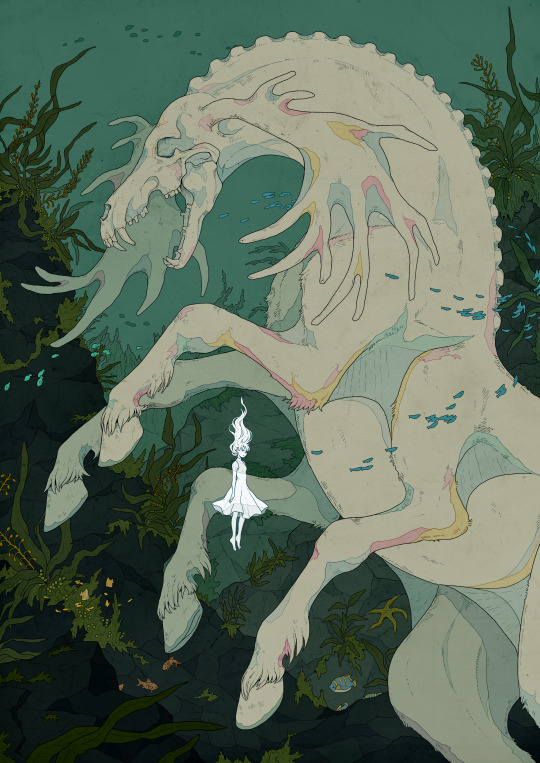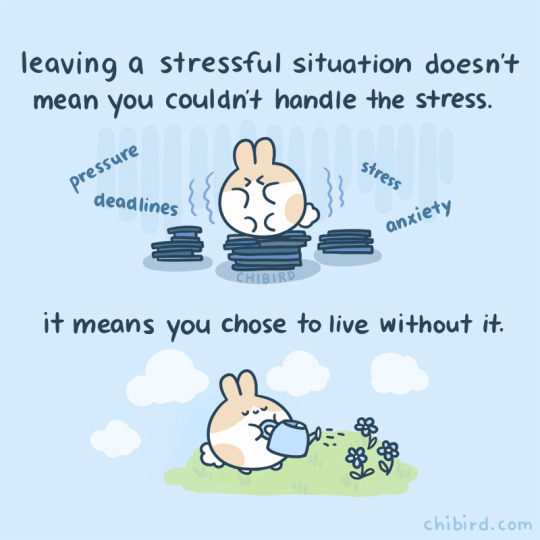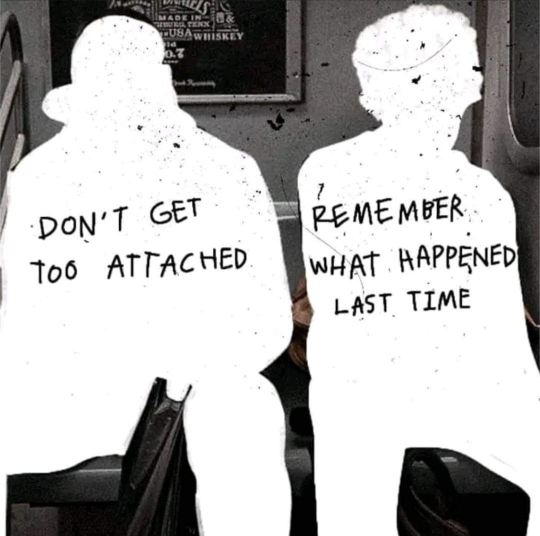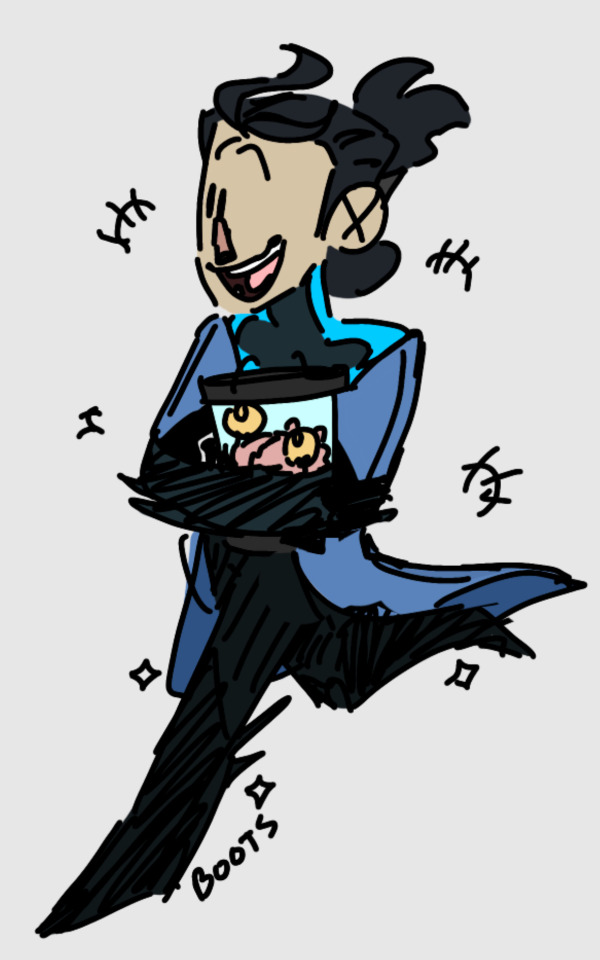#anxiety is life
Text
I wish I could be Hakuna Matata but instead I’m Deprezza Anxieta
3 notes
·
View notes
Text
This is for the people who didn’t party in their teens and twenties. For the people who didn’t have that “coming of age” movie experience with shenanigans and revelations. This is for the people who mostly keep to themselves. Who maybe prefer things to be quieter and gentler. This is for the people who don’t feel like they belong in a culture that values loud parties and flashing lights. I see you. And you are valid.
#teenagers#early twenties#late twenties#growing up#childhood#nostaliga#introvert#homebody#quiet life#outcast#shy#college#university#high school#neurospicy#neurodivergent#mental health#mental illness#social anxiety#it’s okay
74K notes
·
View notes
Text

Mother of Pearl
#artists on tumblr#seahorses are cute aren't they#how are we coping with the heat wave everyone?#i'm too busy having like three different kind of existential crises#to worry about it being too hot#hot girl summer more like nonstop anxiety summer#pondering the fact that nothing is permanent#can't rely on anything to last#life is just#drifting in a sea of uncertainty#but anyway#happy pride month#be gay#eat ice cream#don't think about your mortality
29K notes
·
View notes
Text

87K notes
·
View notes
Text


Idiot to Idiot communication
#there's a part 2 to this in my brain but idk if I'll draw it and this can stand alone fine too#danny phantom#my art#van life au#agit technically#i like when older danny grows his hair out but i could kinda see him avoiding it as a way of avoiding that evil alt future#like hes uncomfortable with how it likens back to it#but maybe having van around and seeing that alt future version try to be a better person in their 2nd chance could#ya know relieve any of that anxiety#so i wanted to illustrate them having a conversation about it#but i got stuck on thia funny beginning part#who knows if I'll get around to the serious part
5K notes
·
View notes
Text
Frankly, if I'm the odd one in a group I'd rather be mislabelled than singled out. "All right, ladies – oh, and Dave" like, don't put me on the spot like that. For the purpose of this exercise I will answer to "ladies".
11K notes
·
View notes
Text

Don’t feel bad if you have to leave an environment that wasn’t good for you! It takes courage and strength to choose your health and search for a better life.
Chibird store | Positive pin club | Instagram
2K notes
·
View notes
Text

#autistic things#autistic life#autism#actually autistic#neurodivergent#neurospicy#funny memes#memes#social anxiety#adhd brain#adhd#adhd problems#funny
6K notes
·
View notes
Text
do any other artists feel like. yeah you're a 'good artist' because you draw things that look nice, but like. TECHNICALLY? you're really not great
i really hate that i can recognise that yes, my art is good, but is it VARIED? is it dynamic?? is my anatomy good? is it full of texture and colour theory? do i know how to do This? can i do That? no, not really. and that's quite painful actually
#ramble#yes this is the artist's perspective bs and yes this is anxiety because it's 1am#and yes i'm forever learning and growing but also#aaaaaaaaaaaaaaaaaaaaaaaaaaaaa.#drawing my little guys is fun but i am not good enough for the industry right now and that fucking sucks#i really feel like if i walked into a studio with my portfolio right now they would laugh at me#one of those days where i wish i'd done a more useful degree y'know#i'm going back through the phase where i don't know what i'm going to be anymore and it's scary#some days i really want to give it up and never draw again and do something worthwhile because i Know my life would be easier#and i hate that something i love so much makes me feel so hopeless#signs that i should go to bed ^^^^#i will resume my pity party tomorrow
1K notes
·
View notes
Text
I think it would really benefit people to internalize that mental illnesses are often chronic and not acute. Some of us will never be able to jump the hurdle of managing illness, much less sustaining a sense of normalcy. Many of us will never "recover," will never manage symptoms, will never even come close to appearing normal - and this is for any condition, even the ones labeled as "simple" disorders or "easy-to-manage" disorders.
It isn't a failure if you cannot manage your symptoms. It isn't a moral failure, and you aren't an awful person. You are human. There's only so much you can do before recognizing that you cannot lift the world. Give yourself the space to be ill because, functionally, you are.
#mental health#mental health advocacy#like... anxiety and depression are often concieved of as simple and easy to manage...#...but that isn't the case for so many of us. anxiety and depression just have a lot more research invested into them...#...and while i wish this were the case for literally every other condition it does alter people's perception of you to some extent...#...so while this is NOT solely about anxiety or depression it includes us...#...my anxiety and depression and PTSD have *destroyed* my life. this is chronic and will probably be life-long...#...and that isn't my fault. i've done the fucking work but guess what? that doesn't account for the fact that I Am Just ILL#the least we can do for each other is to be compassionate#be compassionate to those who cannot heal. be compassionate to the people who can't manage their lives. this world is scary enough#recognize that management of symptoms is something not all of us can do - even IF their condition is labeled as 'easy to manage'#i allowed myself to feel angry that i can't heal 'normally' and that was unfair as fuck toward myself#and i NEED people to internalize this so that MAYBE this could help somebody else who is where i was#i NEED them to understand that it's okay that they are where they are - sometimes shit just doesn't turn out how you expect or want#don't beat yourself over you being a person. you are struggling enough. you deserve to rest. just rest please#and just... give yourself space
2K notes
·
View notes
Text


Fearless Social Confidence: Strategies to Live Without Fear, Speak Without Insecurity, Beat Social Anxiety, and Stop Caring What Others Think - Patrick King book notes
Socially confident people:
expect to be accepted. When they meet strangers, they expect to make a good impression. They never approach situations thinking, “What if they don’t like me?” Instead they think, “I hope I like them.”
evaluate themselves positively. Socially confident people are encouraging, positive, and accepting of themselves. They give themselves leeway not to be perfect and don’t beat themselves up too harshly when they are not.
feel comfortable around superiors. Socially confident people feel comfortable because they don’t feel threatened, or that their flaws and vulnerabilities will be highlighted by the other person’s qualities.
With a lack of social confidence, you are usually choosing the thought that is cruelest to yourself.
when navy SEALs recognize that they are feeling overwhelmed, they regain control by focusing on their breath—breathing in for four seconds, holding for four seconds, and then out for four seconds, and repeating until you can feel your heart rate slow down and normalize.
Core beliefs:
Steps in a thought diary entry can be arranged in the easy-to-remember A-C-B format—
Activating Event. Note down the event/ situation. This is simply the origin point of your emotional change. It’s whatever caused your emotional status to change from calm to agitation (a memory, a song, etc).
Consequences. In this step you identify the specific emotions and sensations that arose. These could be simple feeling words— “anxious,” “unhappy,” “sickened,” “panicky,” “melancholy,” “confused,” and so forth.
Beliefs. This is where the action begins. How do you link the activating event with the consequences? What unconscious narrative or story about yourself was told to achieve the consequence? (“What was I thinking?” “What was going through my head when this happened?” “What’s wrong with that?”“What does this all mean?” “What does it reveal about me?”)
Now you’ve gotten to the bottom of your situation and figured out what your core beliefs are.
The first step is writing down one of the core beliefs you’ve just uncovered. Ask yourself what experiences you’ve had that prove your core belief wasn’t always true. Generate as many experiences as you can and be very specific about what happened.
Write down the core belief you’re examining. Think of ways that you can put that belief to the test. These are actual tasks that you can perform. Then, write down what you expect or predict will happen after conducting these tasks if your core belief was true. Perform the tasks. Write down what really happened after you completed your task. Compare and contrast your predictions with what actually happened. Finally, document what you learned from the task and come up with a new, more reasonable core belief that goes in line with your discoveries.
Bushman’s results imply that sometimes the best course of action after being provoked to anger is to just sit quietly and let it pass.
There’s a direct link between social anxiety and negativity. A 2016 Australian research study showed that “elevated social anxiety vulnerability is characterized only by facilitated attentional engagement with socially negative information.” Obsessing over negative details—including by constantly talking about one’s problems—only reinforces one’s social fears and does nothing to inspire real confidence in a social setting.
Personalization is the mother of guilt. In the cognitive distortion of personalizing, you feel responsible for events that cannot conceivably be your fault. While it is admirable to take responsibility for your actions, there are things completely out of your control: the subway schedule, other people’s actions, and a million day-to-day factors.
Common cues of overgeneralization are “always” and “never.” When starting a sentence or a thought with “always” or “never,” consider whether you have the experience or evidence to back up the statement.
Other people aren't only what they are showing to the world. Most people put on a good show. But do you really know what might be going on in their private life? Take comfort from the fact that while there will be many people who are better at certain things than you are, there are also most certainly things that you will be better at.
If you are self-conscious and worried that people will judge you if you say something stupid or “off,” there's an easy workaround to that. The best approach is simple preparation. Create answers to predictable questions and conversations. Run that mental videotape in your mind about your past 10, 20, or 30 social conversations. I guarantee they are not all that different from each other.
Figure out the general questions that people will ask and the topics that will come up in normal conversation and be prepared with story-answers. For example, How was your weekend? What are you doing this weekend? How was your day? What do you do for work?
How can we ease ourselves into social confidence little by little?
List the social situations you avoid. Ask yourself what kinds of gatherings or circumstances you steer clear of and write them all down in a list. Your list should include both physical situations—parties, family gatherings, work presentations, and so forth—and personal experiences that you don’t want to face.
Give each situation a SUDS level from 0 to 100.
Plan your goals.
Build your goal stepladder. You’ve planned a goal and have decided to start work. Remember, situational exposure is a bit-by-bit process.
#powerful woman#c suite#ceo aesthetic#personal growth#strong women#productivity#that girl#getting your life together#balance#Book#social#social anxiety#confidence#speaking
2K notes
·
View notes
Text

If you're cold, he's cold. Put him in your pocket
#HIS ASS has SEPARATION ANXIETY#i love etho so much he is so anxious and weird all the time#ethoslab#secret life#secret life smp#court jester's art
1K notes
·
View notes
Text
The only reality where I'm happy is a reality where I'm dead, gone from this earth.
A reality where I'm never born.
Everything would be so much better.
#personal vent#anxiety depression#depressing life#depressing shit#kinda depressing#dead inside#sorry for being depressing#tw depressing stuff#tw depression#tw depressing thoughts#bpd vent#bpd fp#actually bpd#bpd thoughts#bpd
884 notes
·
View notes
Text

39K notes
·
View notes
Text
Uhm, possible spoilers i think for Marble Sky [made by @somerandomdudelmao in which you should go and check out if you haven’t read rn cause they be very cool very cool and very cool]
but—OMG I LOVE THIS BIRB AUUUHGHGHHGUGHUHURHUEHGI—
IN WHICH THEY ARE PERFECTLY FINE AND WE SEE SO SO MUCH OF THEM NYYYGUUH—
Guys guys guys — please trust meee she is A-OK and she is gonna be a teacher to Oscar as they make a pacifist alien befriending club



I am not in denial i have no clue what you’re talking about—
I ain’t got a clue what these so called ‘jars’ even look like yet but i sketched a thing out immediately and then at that point my intrigueness started to fade, and then the ref came out and for some reason that boosted my interest even further. But i know what a bird’s brain looks like now so thats something.
I just think she seems very cool
I may have also did some other doodles a week or 2 ago that i didn’t post cause the social of anxiety was kickin in high those days but I’ll put them under the cut if thou wishes to see

That is all ok buh byyeeee go see marble skiessssss
#I saw this woman for less than a second and now i am dreading everything in my life#OUUGHHH she was only there for like 1 single scene AUUUGH#I SHAKE YOU GIVE HER BACK GIVE HER BAC-#ok imma head out now because in case you couldn’t tell my brain needs sleep due to the fact it is past midnight rn#haha little do you know the reason i posted this at midnight was because I STILL got that anxiety in me—#AH HA HA haaaaa..#…#anywho#enjoy#have a very good day#am tired#oufff#have a good day#my drawings#marble sky#weeeeeeee ok bye
479 notes
·
View notes
Text

I don't know what I am doing with my life.
#mental health#mental illness#depression#bpd#bipolar#anxiety#cptsd#ptsd#trauma#sad#sadness#relatable#life#broken#hurt#worthless
520 notes
·
View notes